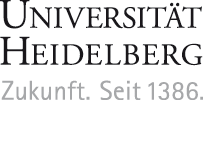Heidelberg University Library: "Our most expensive service by far"
Science Citation Index back online — Benefits and drawbacks
The Science Citation Index (Web of Science) is among the world's largest and most important article databases for the natural sciences and medicine. It is now back online across the entire campus of the University of Heidelberg.
6,000 journals are evaluated each week and around 600,000 (!) entries are added each year, Dr. Sybille Mauthe of the University Library explains. The special thing about the SCI is that it cannot only be used to research scientific literature — it is also an excellent tool for evaluating scientific achievement and publication performance.Besides providing the customary bibliographic information this database also enables its users to conduct a citation analysis. How much attention has been given to the work of a certain author, who is cited where and how often? The results can even be sorted by institute. So it is hardly surprising that this tool has become a popular resource for higher-education rankings.
The results, however, do need to be taken with a grain of salt, Dr. Mauthe cautions. Unscrupulous citation cartels and mentions dictated by politeness or favouritism distort the results. Also, interdisciplinary research stands a better chance of scoring a large number of citations, while new and innovative fields of study take time to establish themselves.
And there is another problem affecting all universities, including Heidelberg. Many authors simply forget to indicate the name of their home university at all, while others name their home institute only, say the ZMBH, and omit the parent university. Search queries for the University of Heidelberg will then fail to pick up on these entries and in the ranking game this may have negative effects.
But despite these flaws the SCI is an exceptional tool for analysing and evaluating publication performance. Unfortunately, the price is pretty steep. "It is our most expensive service by far," says Dr. Veit Probst, head of the University Library. For a while the Library had even cancelled the costly subscription, but demand was so overwhelming that they have now gone back on the decision.
Dr. Probst can only hope that Heidelberg's scientists and researchers appreciate the considerable effort the University Library is making. Not only has the expensive SCI subscription been reinstated but the Library also offers an additional service: any article within the database can be accessed immediately by a simple mouse click. Very few users realise that it takes a comprehensive infrastructure and a lot of work behind the scenes to make this possible.
Please address any inquiries to:
Dr. Michael Schwarz
Press Officer of the University of Heidelberg
phone: 06221/542310, fax: 54317
michael.schwarz@rektorat.uni-heidelberg.de
http://www.uni-heidelberg.de/presse/index.html


